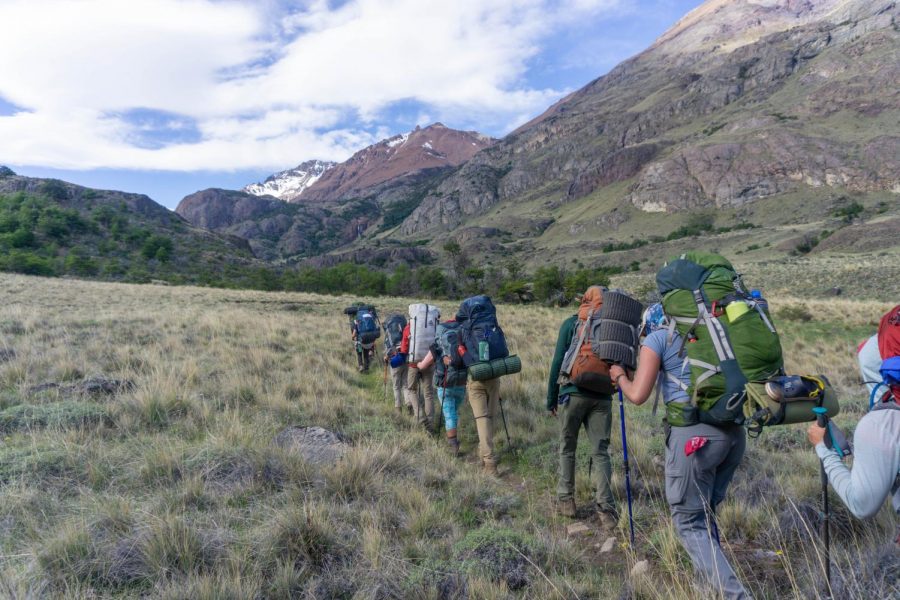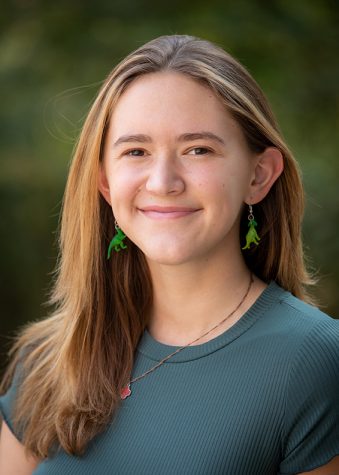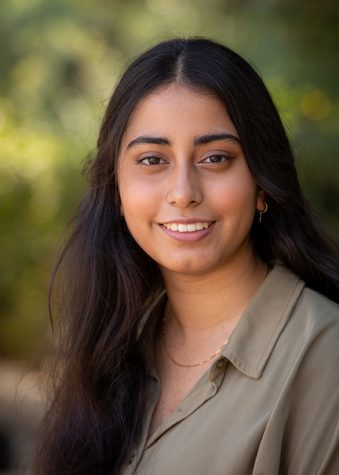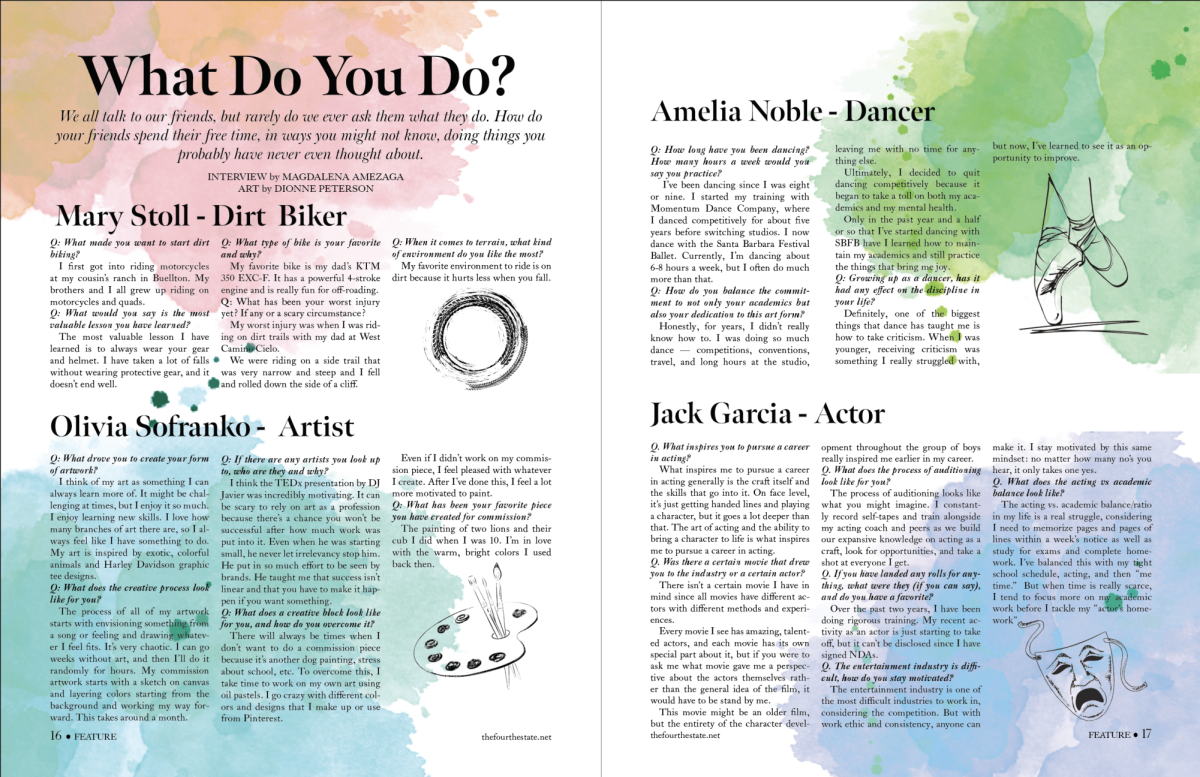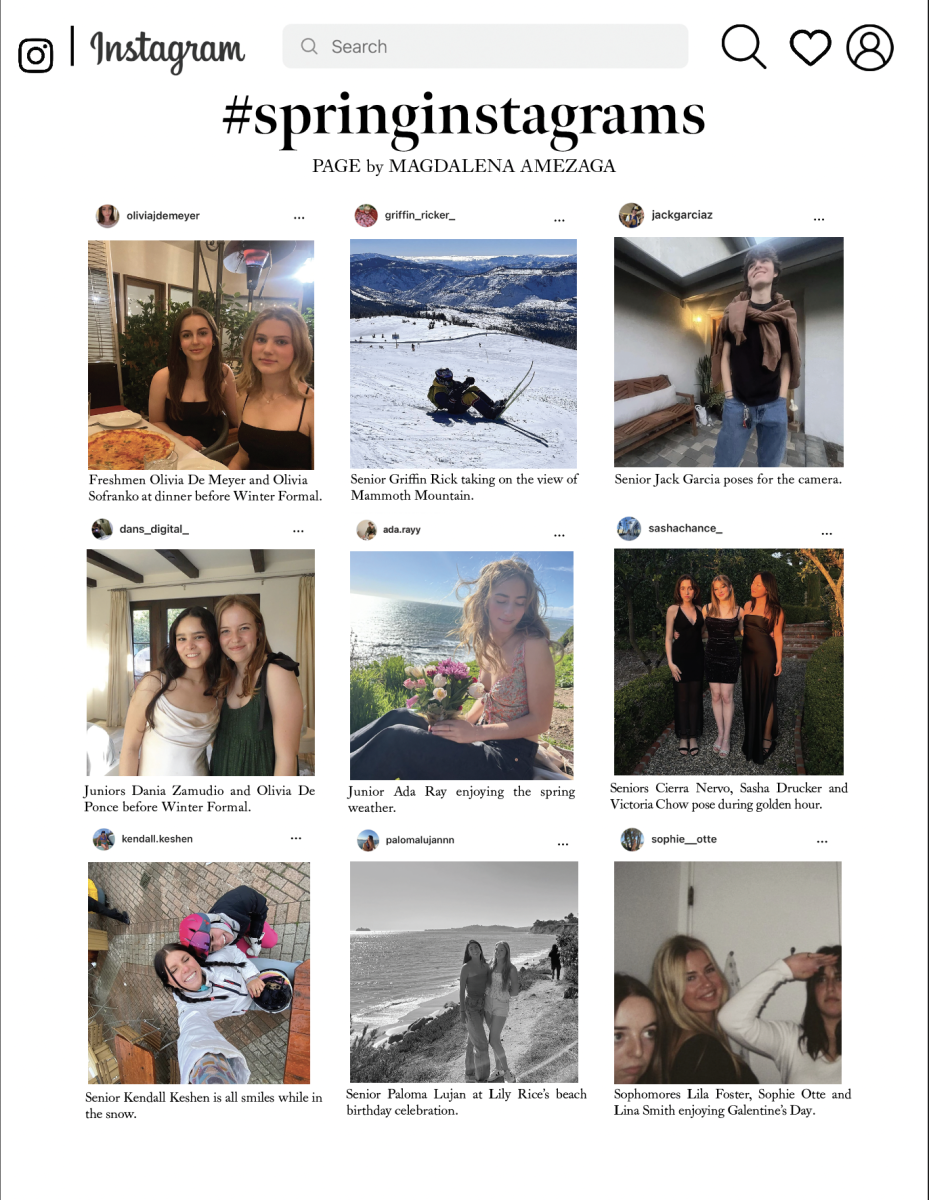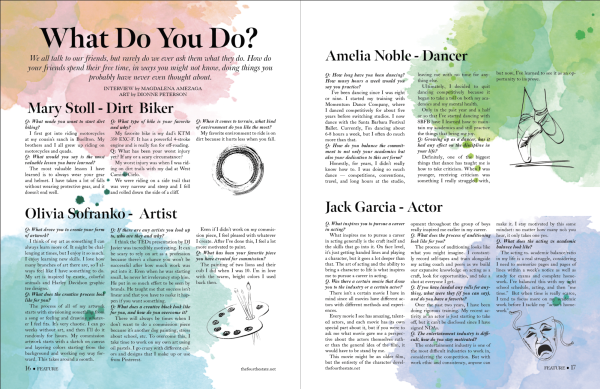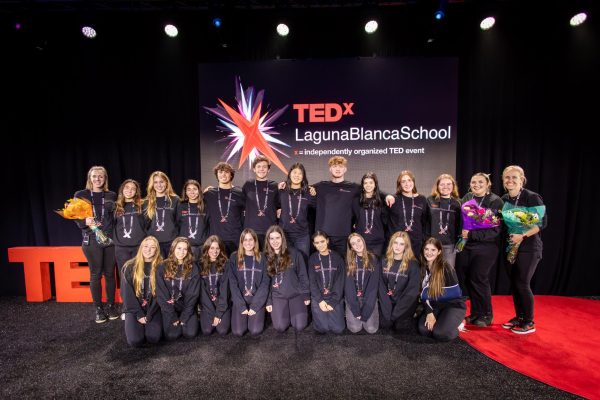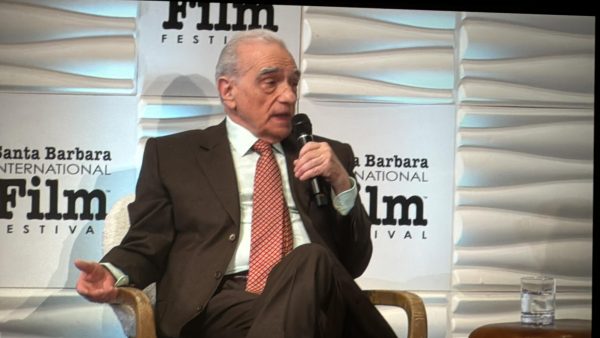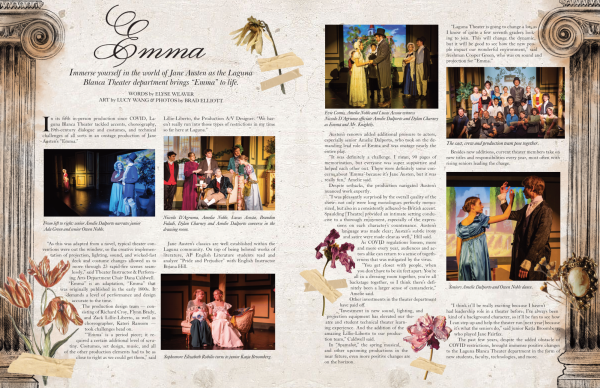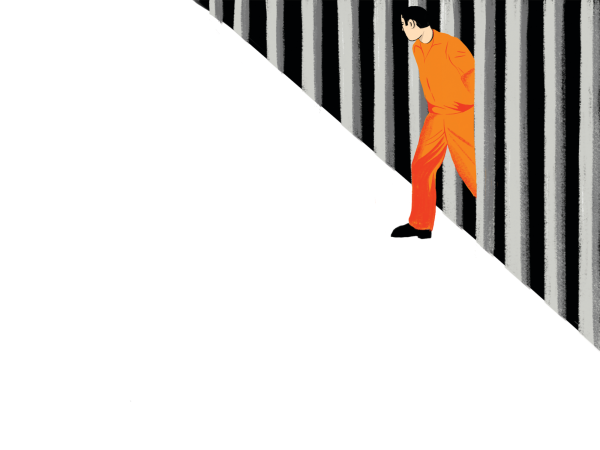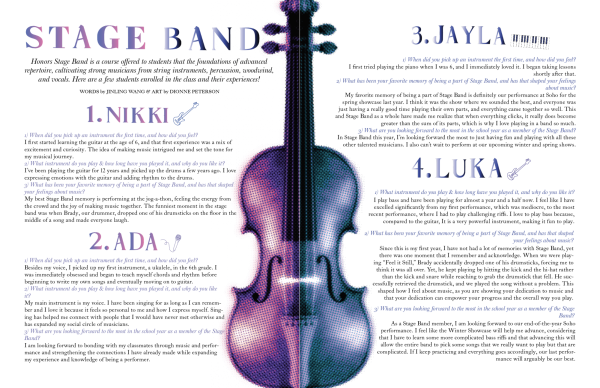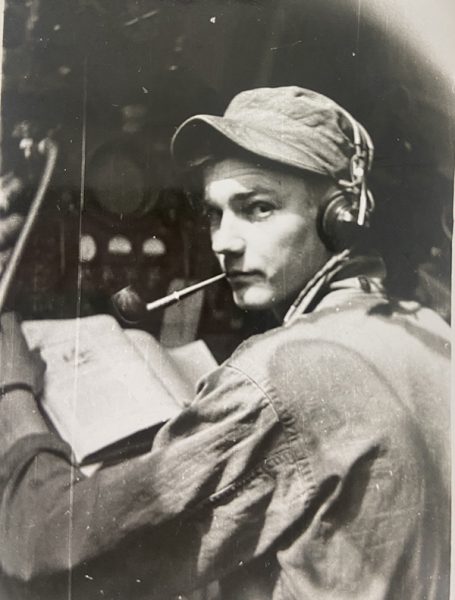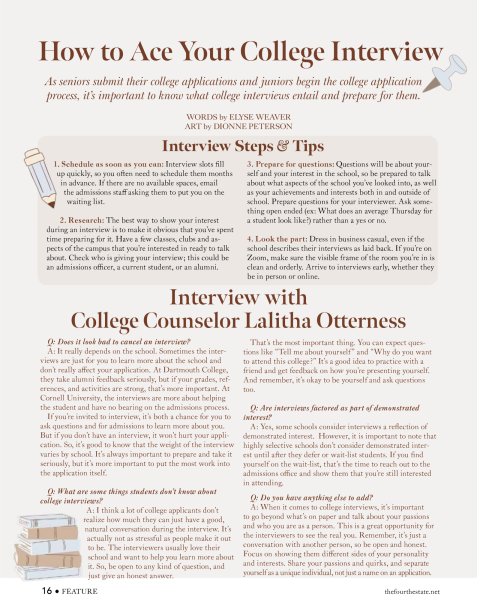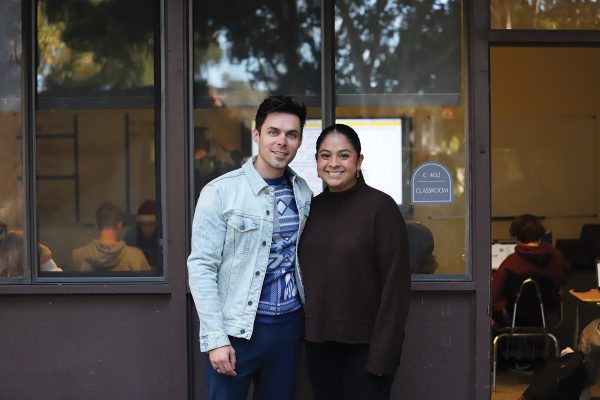A New Kind of Learning
April 29, 2019
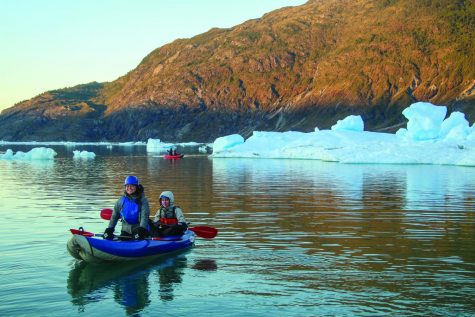 Days spent learning, exploring and making memories. Nights by the fire, singing, talking and becoming a family. Through the Idaho-based Alzar School, this is exactly how Kate Spaulding spent the first six months of her sophomore year.
Days spent learning, exploring and making memories. Nights by the fire, singing, talking and becoming a family. Through the Idaho-based Alzar School, this is exactly how Kate Spaulding spent the first six months of her sophomore year.
Alzar School provides an alternative education which rivals that of normal boarding schools. According to the school’s website, they provide “rigorous academic curriculum, cultural exchange and outdoor adventure.”
Alzar’s focus is on creating leaders who will one day use their newly developed skills, which they learn over six months to make a positive impact on the world.
Alzar’s focus is on “developing the confidence and skills of future leaders,” which is precisely what drew Kate to the program.
An avid adventurer and lover of the outdoors, she has gone on trips all over the world, including Guatemala, Peru and most recently, this past summer, to Thailand.
Spending a month in Thailand through the program Where There Be Dragons, Kate furthered her love of travel and adventure by truly experiencing the new place and engrossing herself in the culture.
The program was the perfect preparation for Alzar, giving Kate an opportunity to get used to completely new experiences and, while only being a month — it could barely compare to her upcoming six-month trip.
This exciting and thrill-filled semester school isn’t just an opportunity for self-improvement and exploration, it is also a place of learning.
The way they learned was far from normal; schooling took place anywhere from a yurt on the plains of Idaho to a small village in Patagonia, Chile.
We met with Kate to discuss everything Alzar: from the places to the people to the out-of-the-box schooling.
THE INTERVIEW
Q: What did your average day at Alzar look like?
A: “On a school day, we would wake up around 7 and eat breakfast at 7:30 and then go to school. Classes were about 45 minutes each. I took normal classes like history, Spanish, English and math, but we also had a leadership class and it ended around 4:30.
After that, we would go kayaking, hiking or do homework. Then, we would have dinner and study hall was from 7 to 9:15. And then we’d go to bed. We had to be in our yurts by 10 p.m.”
Q: How is the learning environment different at an adventure-based semester school?
A: “Alzar was different because it’s a boarding school, so we were at school all the time, which made me close to everyone there. I’m friends with my teachers there because we would go on the expedition and basically live with them, and the class sizes were smaller.
We had a lot of class discussions, and I felt like it was easier to learn that way in a smaller class environment with up to 10 people at most.”
Q: What about adjusting back to LBS? Has it been difficult?
A: “It’s been a little different because I’m not with my friends because being with people every day for four months and then going back to not being with them at all is pretty hard.
The classes are a little different because when you’re doing two different classes and it’s hard to come back in the second semester because some of my classes are behind where I was and some of my classes are ahead of where we were.”
Q: What is the biggest challenge you faced? How do you think it impacted your time at Alzar?
A: “The biggest challenge that I faced was having asthma because when it was really cold or we had to do a lot of hiking, it was difficult.
I had to overcome my fears of it and just understand my limits and how far I could push myself. I feel like I really got a lot stronger, more confident in what I can do.
And the other hardest part was saying goodbye to everybody. That was way harder than anything else, way harder than the academics, or the hard days, or walking or paddling for 25 kilometers because it’s just really hard to say goodbye to people you’ve been with for such a long time.”
Q: What experience in your adventure changed the way you think?
A: “There was this one time when we were backpacking and it was [a] really hard day and I didn’t think I was going to make it.
We were supposed to summit two times and we were going about three and a half miles straight up, no switchbacks, no nothing. I was really afraid I was going to have an asthma attack and die.
I didn’t die, obviously. I’m still here. But we forgot to take a break at the first summit so we just went straight through.
I didn’t know that I could do that, but my whole group was encouraging and supportive. They would walk with me if I was going a little slow or if I needed a break.
But in the end, I made it and thought ‘I can’t believe I just did that.’”
Q: What’s one story in particular that you make sure to share?
A: “I make sure to share with everyone that one time we were in Chile on the river and it was raining all day, we had to portage through the rain and through the mud as we walked for a long time.
We paddled a long time and all my stuff was wet down to my sleeping bag. It was a really hard day and everyone was getting in fights but we all became such a stronger group because of it. And soon that ended and we were all happy and we were staying in real beds and it was awesome.”
Q: What advice would you give to someone about to go on their own adventure?
A: “I would say just have a good attitude and take all the opportunities you possibly can.
If something is going differently or not as well as you thought it would go, just try and make the most out of it and be the most positive because those are the situations you’re gonna remember.”
Q: Do you have any last thoughts?
A: “I just wanna say that if anyone is thinking of doing something like this, it’s such a good idea because you’re gonna learn so much from it and meet such amazing people.
Even if it’s hard, that’s the part that’s fun.”



